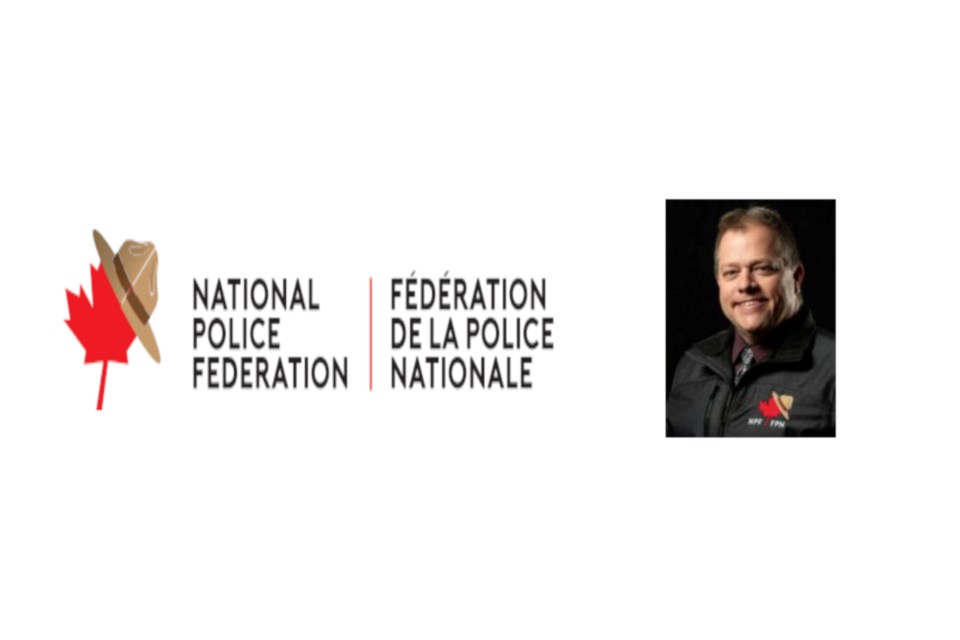ATHABASCA — When the National Police Federation (NPF) formed in 2020 to represent over 20,000 regular and reserve RCMP members, they didn’t expect this fight.
One of the findings in the Fair Deal panel was the need for a new, Alberta-only police force, which could be costly and raises more questions than the report or government can answer said Kevin Halwa a director with the NPF, who has been travelling across the province holding information sessions, including two sessions in both Athabasca and Westlock Jan. 10.
“I'm a staff sergeant with the RCMP,” he said in a Jan. 7 interview. “I just finished 25 years of service but in 2020 when the National Police Federation started up, I was elected by the members from Alberta to represent them with the with the union. So, I've been doing that for the last couple of years.”
Policing reviews, like the one done by the UCP’s Fair Deal panel, aren’t uncommon; Saskatchewan and New Brunswick are doing or just completed reviews.
“I think it's good to kind of take a look at where we are and what can be changed, what can be better, but Alberta's the only one that really seems to be seriously considering moving to a provincial police force,” said Halwa.
The report published by PricewaterhouseCoopers (PwC) was limited in scope and identified a lot of concerns, Halwa said.
“The PwC report left more questions than answers to be quite honest with you,” he said. “Everything from infrastructure to staffing to training to legacy files, what happens to those? The PwC report only scratched the surface, and more concerningly, PricewaterhouseCoopers didn't engage with any municipalities, any of the key stakeholders.”
Currently, the federal government pays 30 per cent, or $185 million, of Alberta’s RCMP policing costs. Alberta taxpayers and local communities would be paying the full cost of provincial policing, plus transition costs that are currently estimated to be around $366 million Halwa said.
“So, if we're if we're throwing away $185 million each and every year post transition towards a new provincial police service, that's a lot of money that could be spent on schools, hospitals, roads, doctors and in services, all those sorts of things,” he said. "There's no shortage of other services that can be provided that the money could be spent on.”
There are risks to community and public safety if the provincial government continues to go down this road, Halwa added, noting the PwC report says a transition will be incredibly expensive and riddled with concerns, not the least of which is where does the province find new police when municipal forces like Edmonton and Calgary and the RCMP are having recruiting issues themselves.
“That's another area the PwC report has as a huge hole and that’s where are you going to find all these police officers? Let's be honest, policing is not the attractive career it once was like when I joined when I joined back in 1997,” said Halwa. “There's give or take about 68,000 people doing all the policing in Canada. That's a pretty small pool to be drawing from which makes the recruitment process for any police force very difficult.”
Now imagine trying to start a brand-new police force where you don't have a single police officer to begin with, he added.
“Even at best estimates, the PwC report suggests there might be 15 per cent of Mounties who'll jump over,” he said. “That's about 640 members (and) you're still about 2,500 members short. That's a lot of people.”
And it is not factoring in the RCMP are considered one of the best trained police forces.
“Our members are some of the best trained police officers in North America, if not the world and are very skilled at what they do and are very good investigators,” he said. “Why you would want less than that quality and pay more for it is beyond me.”
The PwC report also suggests a provincial police force can be up and running by June 2025, something the NPF also says is unrealistic.
“When KPMG (Klynveld Peat Marwick Goerdeler) did a study in Red Deer (in 2019), they thought it would take four years to transition to a municipal police force,” said Halwa. “They determined at the end of it that it was not good business. Financially it wasn't gonna make any sense at all. The PwC report leaves a lot of questions for sure.”
For now, the NPF will keep holding information sessions across Alberta, including some virtual sessions, ahead of the provincial government doing their own town halls starting in February.
“We've been talking to people across the province, whether they're elected officials or regular citizens in the coffee shops and other town halls, conventions and whatnot and time and time again, people have asked us, ‘Why is this even being considered by the government to go down this road of a provincial police force?’ and I'm still at a loss for answer on that,” he said.
More sessions, including virtual, will be posted on the keepalbertarcmp.ca website.



